- Home
- D’Angelo Chair Lecture Highlights Power of Poetry
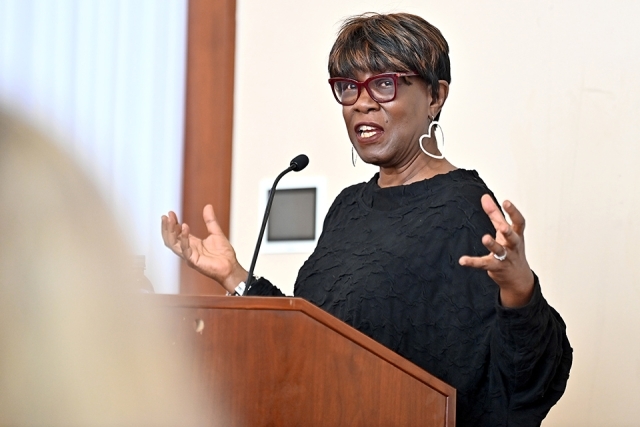
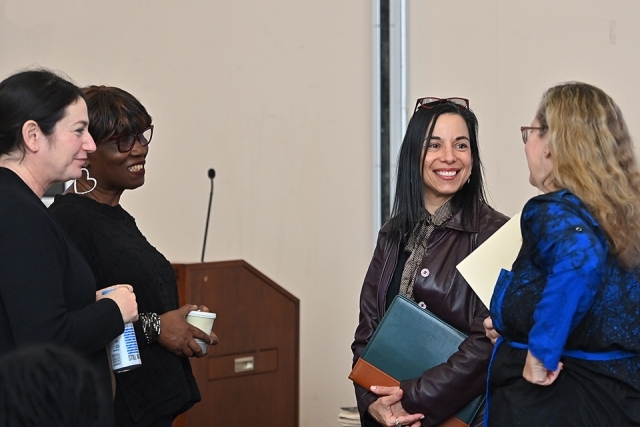
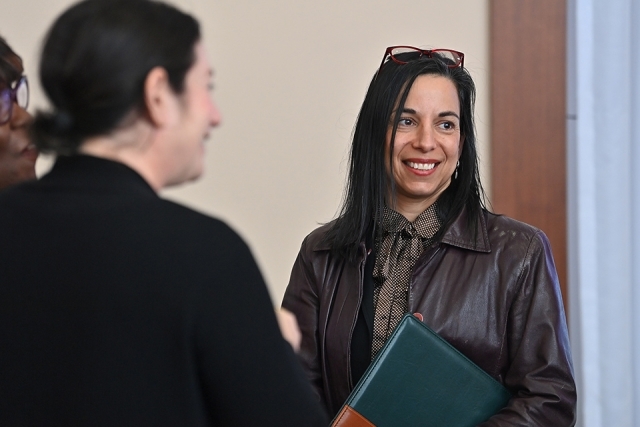
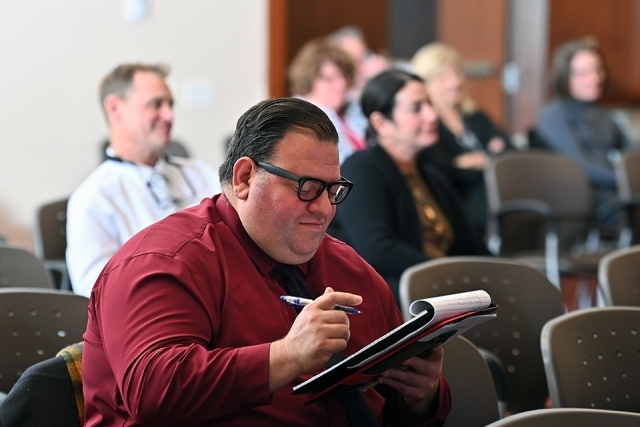
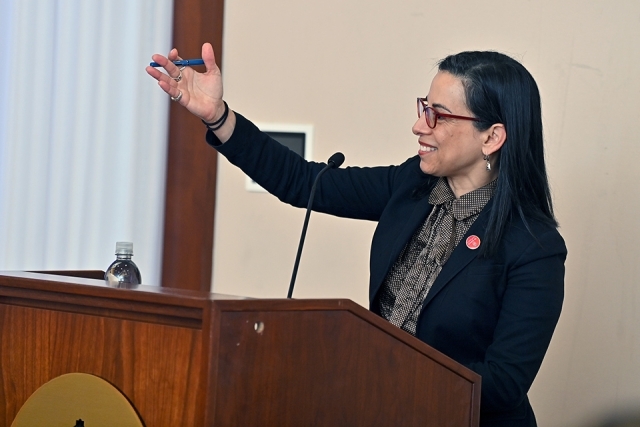
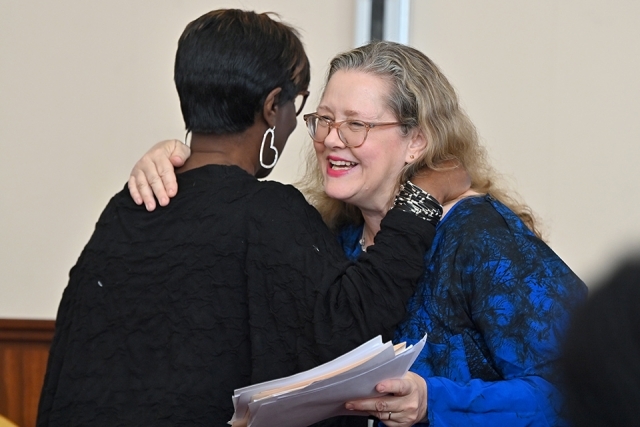
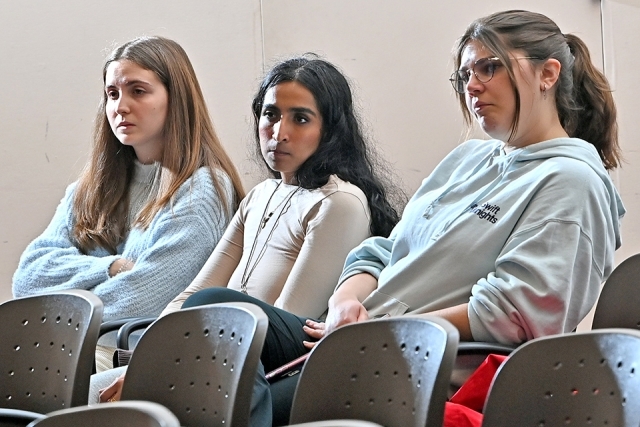







Poetry has the power to move people through the most difficult situations. It can assuage grief and bring new knowledge and a deeper perspective.
That was the message of Patricia Smith, M.F.A., the 2020 Peter P. and Margaret A. D’Angelo Chair in the Humanities, in a lecture, “Practicing Incendiary Art,” held on November 14 in the D’Angelo Center on the Queens, NY, campus. Ms. Smith, Distinguished Professor of Creative Writing at the College of Staten Island, The City University of New York, has authored eight books of poetry, most recently Incendiary Art (2017).
Peter P. D’Angelo ’78MBA, ’06HON and Margaret LaRosa D’Angelo ’70Ed, ’22HON established the Chair in 2007. It draws high-profile, multi- and cross-disciplinary visiting professors to St. John’s College of Liberal Arts and Sciences for a semester of teaching and scholarly exchange.
In Spring 2020, Ms. Smith joined the Department of English faculty of St. John’s College of Liberal Arts and Sciences as the D’Angelo Chair and taught an undergraduate poetry workshop that focused on the spoken word, hybrid forms, formal poetry, prose as poetry, and the emergence of modern poetry as performance and competition. She was originally slated to deliver her lecture that semester before the University pivoted to remote learning due to the COVID-19 pandemic.
Ms. Smith credited her father, a lifelong storyteller, with inspiring her chosen profession. An only child who is African-American from the south side of Chicago, IL, she occupied a great deal of her time writing in a spiral notebook about the adventures of a young girl she named Erica.
“She was White, with black hair and blue eyes. She had six brothers and was head cheerleader, class president, and homecoming queen,” Ms. Smith recalled. “If the world I thought I belonged in was not made for me, I could create it. I lost myself in it for a long time.”
Ms. Smith knew she wanted to write creatively, but it wasn’t until she attended a poetry reading at age 30 that she discovered Chicago’s vibrant literary community. “The poetry was immediate; it was accessible,” she reflected. “It was discussing events in the news. This was not how I remembered poetry.”
She added, “I never saw anyone controlling audience with voice and word that way. That is when I decided I wanted to become part of that community.”
Still, Ms. Smith didn’t see how she could make a living as a poet. Perhaps, she thought, she could teach poetry. With a group of like-minded individuals, she attended various poetry “slams,” events in which people competed against one another. She soon discovered there is a great responsibility that comes with being a poet.
Poets, Ms. Smith explained, often write about “incendiary events” that are often never discussed. “I realized how much responsibility there was in those lines. We were writing for a lot of people who don’t write poems, who will never write poems, who were coming to poetry looking for that conversation, and looking for that voice that says, ‘This happened, and you’re not alone.’”
Throughout the lecture, Ms. Smith paused to read a number of poems she had written over the last 30 years. Asked if there are things she will not write about, her answer is an emphatic no.
“There is nothing I do not think needs to be examined and discussed. Many of the problems we have now result from hiding so much away. There are few families that aren’t built around secrets.”
Related News
Q&A with School of Education Alumna Linda I. Rosa-Lugo, Ed.D. ’77ED, ’79M.S.Ed.
Linda I. Rosa-Lugo, Ed.D. ’77ED, ’79M.S.Ed., recently accepted a new role as President of the American Speech-Language-Hearing Association (ASHA). Prior to this, Dr. Rosa-Lugo has been an active...
Insurance Leader of the Year Dinner Raises $3.6M for GSRM Students
A global gathering of aspiring students, insurance industry executives, and other supporters of the Greenberg School of Risk Management, Insurance and Actuarial Science (GSRM)—part of The Peter J...
TSOE Alumna Appointed Director of Curriculum in Amityville
Jessica Kemler ’99ED,’22Ed.D.—a double alumna of The School of Education at St. John’s University—began the new year as the new Director of Curriculum in the Amityville, NY, School District. “We are...
